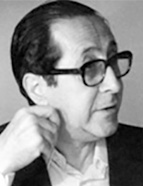

Alongside his civic and political activity, Armando Castro produced important scientific work. He wrote exclusively in Portuguese, penning more than fifty books and a hundred articles for journals and newspapers. His work focused on Portugal and was not widely disseminated abroad because he wrote solely in Portuguese.
Before becoming a university professor, it should be noted that he always published in periodicals that criticised the dictatorship – O Diabo [The Devil] , Sol Nascente [Rising Sun] , Pensamento [Thought] , Vértice [Ve rtex] , Seara Nova [New Harvest] and Revista de Economia [Economics Magazine] – which shows the close connection between his activity as a writer and the practice of political activism. In his valuable and vast output, he perfected his historical, economic and also epistemological thinking, which deviated little from a Marxist reading. In fact, from both a civic and intellectual point of view, he can be considered an orthodox Marxist who never deviated from the grid of interpretation of historical materialism. He quoted Marx countless times, took up Marxist rhetoric and used it throughout his writings. He read Capital in the 1940s when few economists had read it; he always drew on this author, his followers and his main concerns. His interest in Economics, developed when he was a student in Coimbra, was marked by the books A Investigação Científica ao Serviço da Economia [Scientific research at the service of the Economy] and Alguns Aspectos da Agricultura Nacional [Some aspects of national Agriculture] , published in 1945. Both volumes on economic issues that were relevant at the time. However, he quickly connected Economics with History when he published the double volume Introdução ao Estudo da Economia Portuguesa (Fim do Séc. XVIII a Princípios do Séc. XX) [Introduction to the study of the Portuguese Economy (late 18 th century to early 20 th century] in the Cosmos Library in 1947. This collection, directed by Bento de Jesus Caraça, had a clear scientific dissemination purpose and gave the young Armando Castro the opportunity to publicise his work. During th at same year, he took part in the attempt to make the Sociedade Portuguesa de História da Civilização [Portuguese Society for the History of Civilisation] possible, as shown by a letter from António José Saraiva to Jorge Borges de Macedo dated 22 March 1947, the latter then secretary of this informal structure (Armando Castro case file, ANTT, PIDE/DGS, SC, Series: SR, N o. P: 569/46, NT: 2568, sheet 170). This emphasises his inclusion in the small group of historians that criticised political power and wanted to propose a new approach to the History of Portugal.
This work is financed by national funds through FCT - Foundation for Science and Technology, I.P, in the scope of the projects UIDB/04311/2020 and UIDP/04311/2020.
